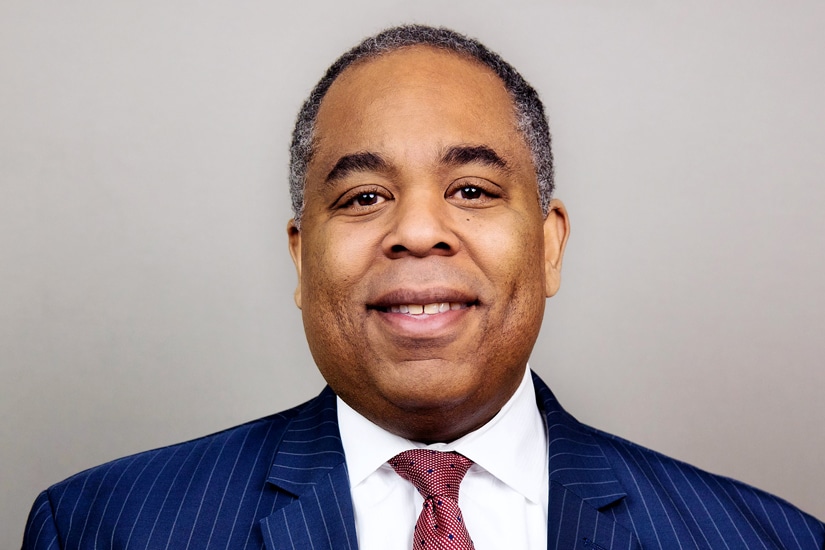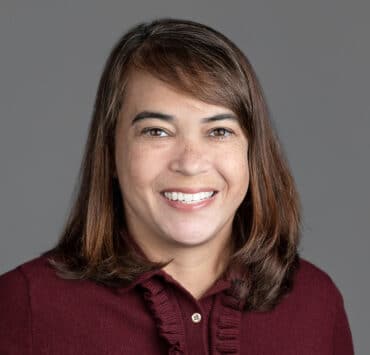|
Getting your Trinity Audio player ready...
|
Chicago became more diverse in the 1990s: the metropolitan area grew by more than 10 percent, and the city’s Hispanic population increased by 220,000. Still, when Emery Harlan looked around his law firm, he saw what he had always seen—a group of attorneys that wasn’t diverse at all.
Not only was Harlan the only African American at Ross & Hardies, but the firm hadn’t hired a single person of color in nearly five years. Harlan found this perplexing. Chicago, after all, was a diverse community, and its government offices were filled with diverse leaders. “The very fact that a major law firm could exist in a city like Chicago without more people of color showed me there was a problem that someone needed to change,” Harlan says.
It didn’t take long for the young lawyer to realize he could become part of the solution. Harlan met with leaders in his firm and made himself a part of the recruiting process. Ross & Hardies started to recruit students from Howard University School of Law and other historically black universities. Harlan and his colleagues also reached out to affinity groups at other law schools with large African American populations and encouraged minorities to apply to their firm as summer associates.

Early results were encouraging, and Harlan says he didn’t encounter much pushback from key partners. “There had been tremendous growth regarding people of color in government entities and corporate leadership, and these are the people who decide where their outside legal spend goes,” he says. “Becoming a more diverse law firm isn’t just the right thing to do. It’s also a smart business strategy.”
As Harlan realized the impact he could have, he dedicated himself more fully to promoting greater diversity within the legal profession. He left Ross & Hardies in 1994. He’d graduated from the University of Wisconsin Law School and noticed the potential of the Milwaukee landscape. Wisconsin’s lawmakers wanted to push legal work to firms owned by minorities and women, but the state was not meeting its diversity goals. Harlan moved to Milwaukee to join minority-owned law firm Gonzalez & Saggio, where he remained for two decades, eventually becoming its managing partner.
In 2016, Harlan cofounded a new firm with his partner Kerrie Murphy: MWH Law Group, where he continues to advocate for diversity in the legal profession. He pushes municipalities and corporations to send more legal work to minority lawyers and minority-owned firms, and over time, he’s created and partnered with professional groups designed to help with this effort.
While Harlan was still with Gonzalez Saggio & Harlan, he and his colleagues created a state-based program to encourage corporations to commit to using diverse lawyers and firms to handle some of their legal work. After seeing early momentum, they decided it was time to do something on a national scale. In 2001, Harlan helped launch the National Association of Minority and Women Owned Law Firms (NAMWOLF). The nonprofit trade organization “promotes diversity in the legal profession by fostering successful relationships among preeminent minority- and women-owned law firms and private/public entities.”
NAMWOLF started on two card tables in a small office suite. Harlan and his cofounders convinced a handful of firms to join. Key partnerships with companies like Walmart, Microsoft, and Dupont gave the fledgling organization instant credibility. Today, NAMWOLF partners with more than two hundred firms and one hundred major companies, including Google and Salesforce.
“The very fact that a major law firm could exist in a city like Chicago without more people of color showed me there was a problem that someone needed to change.”
In addition to helping corporations increase diversity and retain minority- and women-owned firms, NAMWOLF works to build partnerships among its members. Each year, it hosts several events to train and educate minorities in the legal profession.
Harlan is pleased with the progress he’s seen. “Minority-owned firms are unfortunately accustomed to doing lower-value legal work, but NAMWOLF is helping them find better opportunities,” he says. Recently, one NAMWOLF firm won the opportunity to complete a major corporate bond issuance for Wells Fargo. Companies like CVS, Honda, and United Airlines are helping minority-owned firms showcase what they can do.
While the organization has made progress, there is still much work to be done. In 2021 Wisconsin issued an RFP (request for proposal) to find counsel for litigation against chemical manufacturers, and Harlan was shocked to see that the document lacked basic questions regarding diversity or team demographics. Although diverse lawyers are finding more in-house positions, people of color remain underrepresented in corporations, boards, and firms.
At MWH, Harlan looks for any chance to advocate for women and ethnic minorities. He mentors young lawyers to help them succeed. “Mentorship is important because veteran lawyers need to make sure the people coming up are armed with the skills and abilities they need, so they can seize the chances we are fighting to give them through advocacy,” he says. While he continues to work with NAMWOLF, he’s also hoping to create a new Wisconsin-based organization to push local municipalities and companies to increase the diversity of their boards, workforces, and vendors.
After thirty years as an advocate, Harlan is both optimistic and realistic. He knows the fight will never end. “There will always be challenges to overcome and conversations to have,” he says. “We’re not done. But as we move forward, we can remember and celebrate the successes we’ve had as we press on for more.”


